Ken Lau
-

Vanderbilt Innovation Catalyst Fund continues advancing research with new review committee
The Vanderbilt Innovation Catalyst Fund, launched in 2023, bridges the gap between academic research and real-world applications by supporting projects with commercial and societal potential. To date, the fund has completed six award cycles, distributing 39 grants to VU and VUMC awardees across diverse disciplines. Read MoreSep 4, 2025
-

New research points to cell subtypes that increase risk of diabetes
Three Vanderbilt faculty members are diving into a "chicken-and-egg" problem of type 2 diabetes: Does the disease change beta-cell subtypes? Or do changes in the cells cause diabetes? Guoqiang Gu, Emily Hodges and Ken Lau have come up with a new method of studying the subtypes that can track them through different stages instead of just once when they're fully developed. "Thanks to this and other research, it may be possible to one day create a diet supplement for pregnancy that could reduce the risk of diabetes for babies," Gu said. Read MoreAug 7, 2025
-

Margaret Cuninggim Women’s Center honors six at annual awards
This spring, the Margaret Cuninggim Women’s Center to honor six individuals from the Vanderbilt community during its annual awards. Read MoreApr 14, 2025
-

New center at Vanderbilt applies advanced technology to biological research
Vanderbilt University’s new Center for Computational Systems Biology brings computer science, engineering and biomedical researchers together with clinicians at Vanderbilt University Medical Center to accelerate discovery related to human diseases and conditions. Read MoreJan 16, 2025
-

Lau lab publishes authoritative reference article on the hallmarks of precancer
Ken Lau, professor of cell and developmental biology, and colleagues have laid out the principles governing the biology of early, precancerous lesions, which are different from the principles that govern cancers. Their authoritative perspective was published in Cancer Discovery in April 2024. Read MoreMay 9, 2024
-
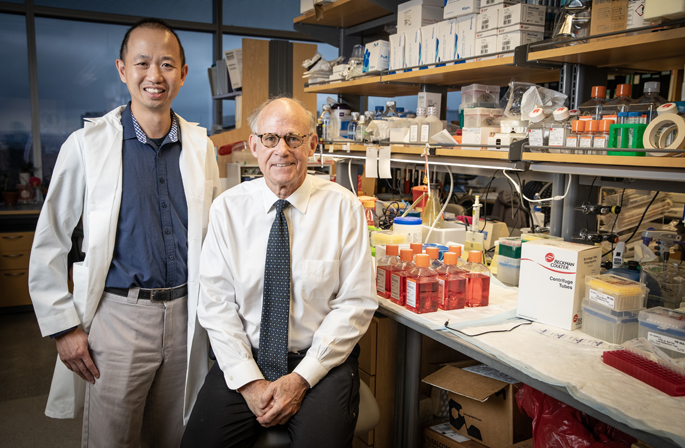
Colorectal cancer ‘cartography’ reveals an avenue to improved immunotherapy
Vanderbilt University Medical Center researchers have discovered why most colorectal tumors escape detection and destruction by the body’s immune system. Read MoreDec 8, 2023
-

-
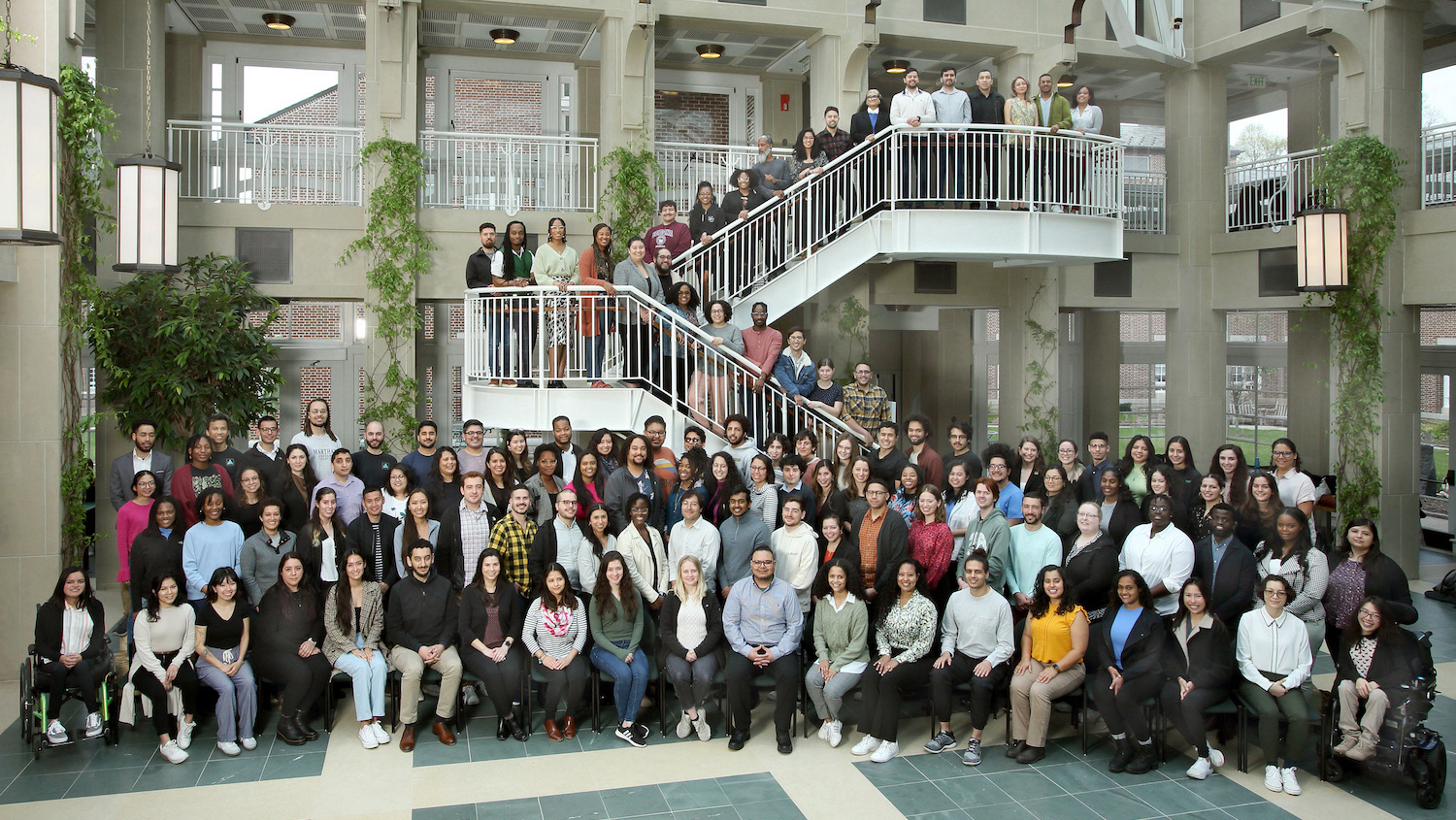
Two Vanderbilt School of Medicine Ph.D. students, their faculty advisers selected for HHMI Gilliam Fellows Program
Four Vanderbilt graduate students, faculty advisers named to Howard Hughes Medical Institute Gilliam Fellows Program for their leadership in science and commitment to advancing equity and inclusion in science. Read MoreAug 4, 2023
-
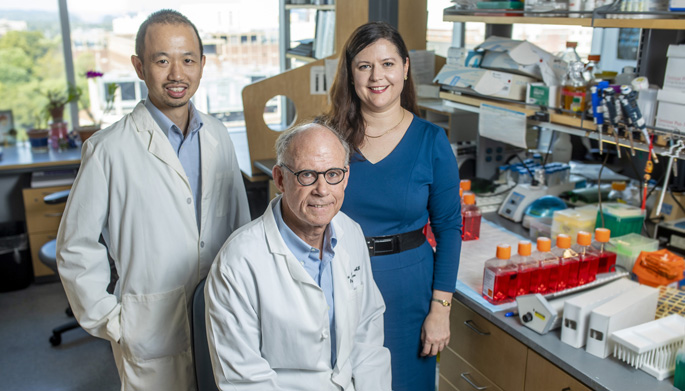
Colon cancer researchers awarded NCI grant for study of early lesions
Vanderbilt researchers are studying precancerous lesions and early cancers in the colon, with the goal of developing new ways to prevent colorectal cancer, the nation’s second leading cancer killer. Read MoreSep 22, 2022
-
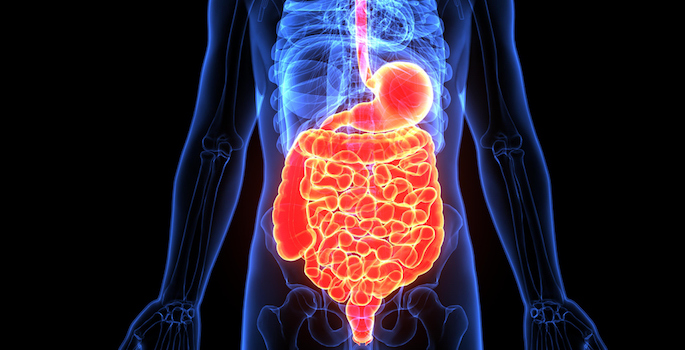
Preserving gut mucus architecture
A new method that keeps microbes and gut cells together will be useful for studies of complex host-microbe interactions and for analysis of clinical specimens. Read MoreOct 20, 2020
-

Studying cells in reduced dimensions
Vanderbilt cell biologists have developed an unbiased, quantitative framework for evaluating single-cell data. Read MoreJun 18, 2020
-

Building a pancreas
Ken Lau and Guoqiang Gu have identified a critical biomarker in determining how a pancreatic progenitor cell will develop. Read MoreJan 17, 2019
-
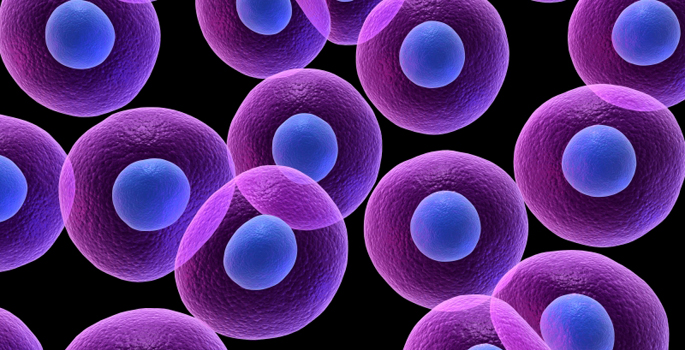
Analyzing single-cell landscapes
Qi Liu, PhD, Ken Lau, PhD, and colleagues have developed a new tool, sc-UniFrac, to quantify diverse cell types in single-cell studies. Read MoreNov 30, 2018
-

Cancer Moonshot award to help map tumor progression
A trans-institutional team of researchers at Vanderbilt University Medical Center and Vanderbilt University has received an $11 million Cancer Moonshot grant to build a single-cell resolution atlas to map out the routes that benign colonic polyps take to progress to colorectal cancer, the third most common cancer among both men and women in the United States. Read MoreSep 27, 2018
-

Lineage tracing in the gut
Vanderbilt investigators have developed an algorithm to classify cell types from experimental data, making it possible to understand how organs develop. Read MoreNov 30, 2017
-
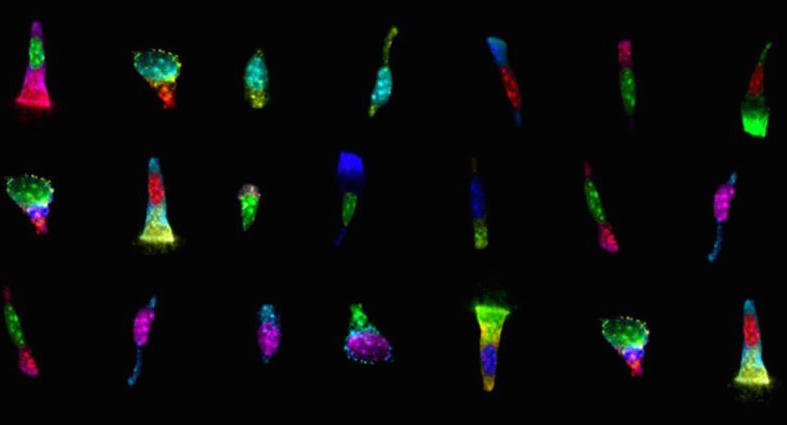
Single-cell study of tumor samples
A new method for analyzing cells in fixed biopsy tissues from patients by guide personalized treatment strategies for cancer. Read MoreOct 26, 2016
-

DISSECTing cell signaling networks
Vanderbilt researchers have developed a new method to study cell signaling networks at single-cell resolution. Read MoreDec 14, 2015
-
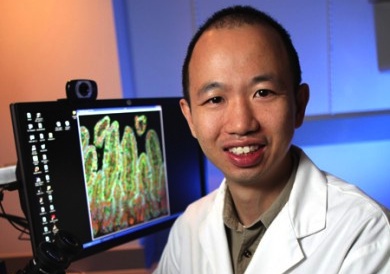
Pioneers of Discovery: Investigator driven to divine cellular ecosystem’s rulebook
Ken Lau, Ph.D., a new assistant professor in Cell and Developmental Biology, is out to determine the rules that lead to cells converting from one type to another, for example, when a healthy cell becomes a cancer cell. Read MoreOct 31, 2013